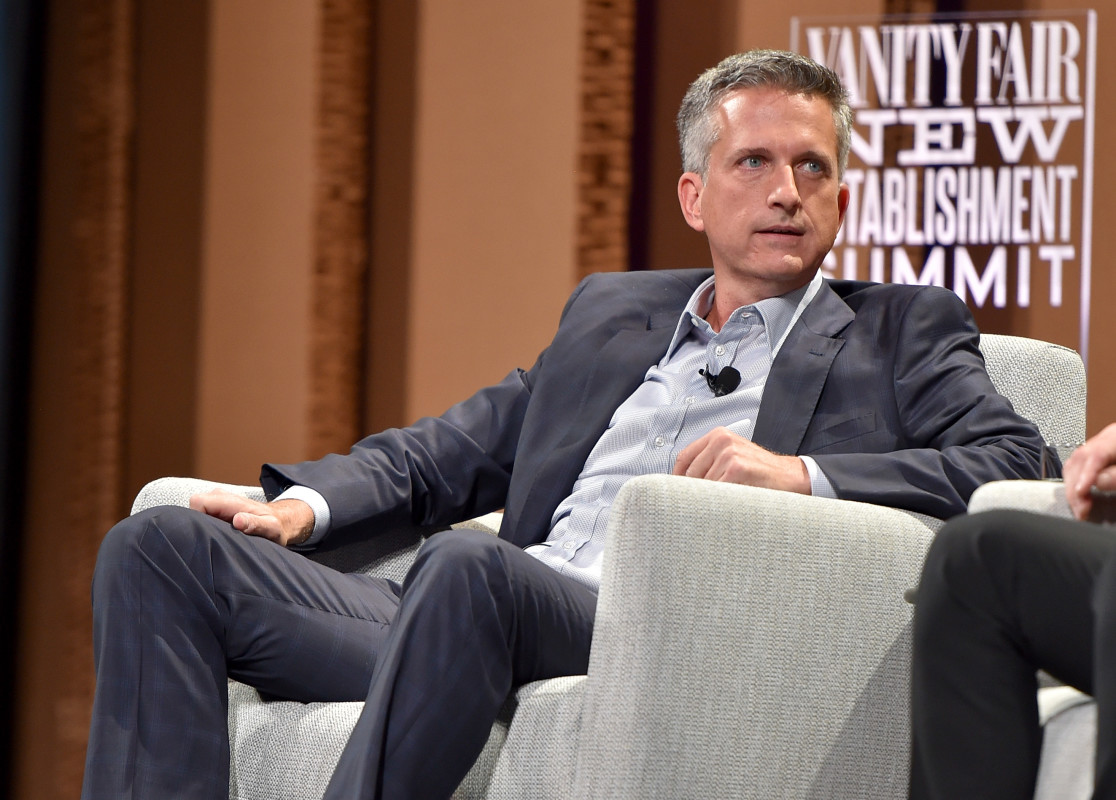
Bill Simmons is known for his sports commentary, but he's also been a voice in the pop culture space and the media industry at large.
On Monday, The Ringer founder and Spotify head of podcast innovation and monetization spoke about the media industry and Netflix's place in it on "The Bill Simmons Podcast" alongside longtime media journalist Matthew Belloni.
Simmons and Belloni were both very bullish on the success of Netflix in 2023 and beyond, becoming a singular entity at the top of the battle of the streamers.
"We were having a streaming war, and it felt like there was going to be four people at the end. I'm starting to feel like there's going to be one, and it's going to be Netflix," Simmons said.
Belloni, who is the founding partner of Puck News, agreed with Simmons, though he does believe that there will still be other competitors that will be present in the space.
Related: LeBron James, Peyton Manning, and Barack Obama might be teaming up
"It's certainly going that direction," Beloni said. "I don't know if it'll be that drastic in a sense that other streamers won't have viable businesses. They'll probably be three or four viable streaming businesses that continue. But the moat that Netflix is drawing around itself right now is pretty impressive."
Belloni said that a big reason why is because other streamers are being "forced to cut costs" where as Netflix has been able to rebound from what he described as the "Great Netflix Correction." Netflix faced headwinds in 2022 after it finally saw a dip in subscribers — but it has recovered quickly, including a growth of nine million subscribers in Q3 2023.
Netflix has been able to establish a stronghold in the market due to its base of nearly 250 million subscribers worldwide, which Simmons credits for helping it build a "monoculture" whenever it releases a big show. Other competitors like Warner Bros. Discovery (WBD) -) and its service, Max, are struggling financially, and are now forced to license some of its shows like Ballers to Netflix in order to earn.
Netflix stock is up 56% year-to-date, and was able to improve its financials by introducing its ad-support tier and policing shared accounts better. Belloni said Netflix is focusing on building a base in that ad-support service, which has about 15 million subscribers.
"They're kind of encouraging people to take the ad-tier, which seems counterintuitive because they you pay them less money, but they really want to build up this ad business and get it to scale now because it's still a very small portion of their subscriber base," Belloni said.
Belloni said that the ad-tier could actually make them more money than their regular tiers, and one of the ways that could happen is if Netflix decides to further dive into live sports.
Netflix had strayed away from live sports up until it finally aired its first live sporting event, "The Netflix Cup," a golf exhibition that featured Formula 1 drivers from its "Drive To Survive" docuseries partnered up with PGA Tour golfers from its "Full Swing" docuseries made by the same producers.
The company has strayed away from the live sports business, saying in the past that it is in the business of owning properties instead of renting them, which is how sports media rights usually work. However, "The Netflix Cup" could mark a change for the brand, and the Sports Business Journal reported last week that the streamer has already expressed interest in acquiring the rights to the NBA's new In-Season Tournament.
Simmons believes that live sports is the final step for Netflix to really get a monopoly in the streaming space.
"Netflix is now — you have to have it, everything feels bigger when it goes on there ... and if they get into sports, it's over," Simmons said.
The two agreed that Disney is probably the competitor to challenge Netflix, especially because they have assets like Hulu and ESPN. Belloni mentioned that Disney also has the differentiating factor of Marvel and the ability to appeal to children. But Simmons isn't convince they can mount a strong enough challenge to create a duopoly.
"I do think that you can see the ceiling of it," Simmons said.
Related: Apple is considering a $2 billion move that could change the streaming landscape
Simmons also talked about Amazon, which is spending a lot on its streaming platform and acquiring live sports like the NFL. But Simmons is left confused by its direction.
"They're spending money on stuff, but I don't know what the strategy is and it really seems like it's heading more toward like what they're doing with the [NFL] Black Friday Game where it's a big event, they're going to pull all of these different things, and they're going to try to get you to buy stuff on Amazon Prime as you're watching it," Simmons said.
Meanwhile, for Apple, Simmons sees them trying to become the next Max, which means more high quality shows at a lower volume. But the difficulty Belloni sees with Apple is that its business is so large that prioritizing streaming likely isn't in its best interest.
"The knock on Apple is that there's no real business imperative for this," Belloni said. "They see this as a component of a service bundles that people will find valuable.
Get exclusive access to portfolio managers and their proven investing strategies with Real Money Pro. Get started now.







